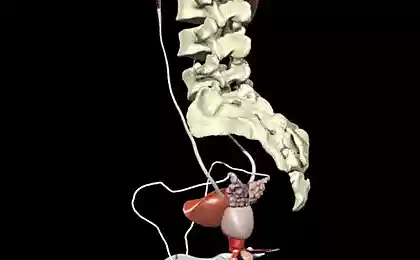201
4 Situations When You Should Ignore Your Emotions
Emotions are an important part of our lives. They help us understand ourselves and the world around us, reflect our inner state, and serve as signals for when to act. However, there are times when strong feelings can only hurt, and instead of splashing them out on others or sinking into negativity, it is necessary to temporarily postpone them. In this article, we will look at four situations in which it is better to ignore your emotions, so as not to make yourself worse.
86253.
1. In the midst of conflict
When you’re in the midst of an argument or conflict, emotions are often overwhelming. Anger, irritation, or resentment can push you to make impulsive statements that only fuel conflict even more.
2. When making serious decisions
When solving important issues in life – from changing jobs to choosing a place to live – we usually experience a wide range of feelings: fear, excitement, insecurity, joy or anxiety. While emotions can indicate what’s important, they’re not always the best advisors.
“Emotion is a bad advisor when objective analysis is needed.”
If you panic, you can give up a promising opportunity. If you overestimate enthusiasm, there is a risk of committing a rash act.

3. With excessive self-criticism
Sometimes we become hostage to our own criticism, blaming ourselves for any failure and feeling guilty that doesn’t match reality. If we unleash these emotions, we risk being stuck in a state of depression.
4. Unfounded fear or panic
We all have moments when our heads are occupied with obsessive thoughts about catastrophic consequences. Such fear is rarely constructive; it often paralyzes actions, undermines self-confidence and prevents an adequate response to the situation.

How to Ignore Emotions Safely
To ignore emotions is not to suppress or deny their existence. It’s about taking a pause and deliberately delaying their manifestation until a more appropriate moment. This helps to preserve the relationship, protect your reputation and make informed decisions.
Conclusion
Showing your feelings and living in harmony with them is natural and necessary. However, it is important to know that in certain situations it is better to postpone the emotional response and assess the consequences first. Faced with acute conflict, making a fateful decision, being in a state of panic or suffering from self-criticism, take a step back and try to ignore the first impulses of feelings. This way you will maintain your composure and be able to act more intelligently and effectively.
86253.
1. In the midst of conflict
When you’re in the midst of an argument or conflict, emotions are often overwhelming. Anger, irritation, or resentment can push you to make impulsive statements that only fuel conflict even more.
- Why you should ignore: In such situations, it is likely to say something you will regret later. Negative emotions can lead to insults and irreversible damage to a relationship.
- What to do: Take a break, leave the room, or stop the conversation for a while to cool down and return to the discussion more calmly.
2. When making serious decisions
When solving important issues in life – from changing jobs to choosing a place to live – we usually experience a wide range of feelings: fear, excitement, insecurity, joy or anxiety. While emotions can indicate what’s important, they’re not always the best advisors.
“Emotion is a bad advisor when objective analysis is needed.”
If you panic, you can give up a promising opportunity. If you overestimate enthusiasm, there is a risk of committing a rash act.
- Why you should ignore: Excessive emotionality prevents a balanced analysis of risks and benefits.
- What to do: Gather facts, ask for advice from more experienced people, make a list of pros and cons. Then set aside time to cool down, and then make a decision.

3. With excessive self-criticism
Sometimes we become hostage to our own criticism, blaming ourselves for any failure and feeling guilty that doesn’t match reality. If we unleash these emotions, we risk being stuck in a state of depression.
- Why you should ignore: Constant self-criticism reduces self-esteem, prevents you from trying new things and taking responsibility.
- What to do: Learn to separate objective facts from emotions. Analyze whether the miss was really serious or if you are just dramatizing the situation. Try to keep a success diary, recording even small achievements.
4. Unfounded fear or panic
We all have moments when our heads are occupied with obsessive thoughts about catastrophic consequences. Such fear is rarely constructive; it often paralyzes actions, undermines self-confidence and prevents an adequate response to the situation.
- Why you should ignore: Panic and irrational fear lead to hasty decisions that can make the problem worse.
- What to do: Use breathing techniques, meditation, or physical activity to relieve tension. Try to gather as much information as possible about the situation and compare it with reality.

How to Ignore Emotions Safely
To ignore emotions is not to suppress or deny their existence. It’s about taking a pause and deliberately delaying their manifestation until a more appropriate moment. This helps to preserve the relationship, protect your reputation and make informed decisions.
- Stop-word technique: Mentally say “stop” when you realize that emotions are overwhelmed. This will help you switch to more rational thinking.
- Self-control through breathing: A few deep breaths and slow exhalations reduce stress levels and help “cool down.”
- Talking to a friend or psychologist: If emotions are too strong, they can be worked on with someone who will listen and ask questions to help take a broader view of the situation.
Conclusion
Showing your feelings and living in harmony with them is natural and necessary. However, it is important to know that in certain situations it is better to postpone the emotional response and assess the consequences first. Faced with acute conflict, making a fateful decision, being in a state of panic or suffering from self-criticism, take a step back and try to ignore the first impulses of feelings. This way you will maintain your composure and be able to act more intelligently and effectively.
How to develop emotional maturity and how it will help you in life
Polina Sopetina: the model of two cities























